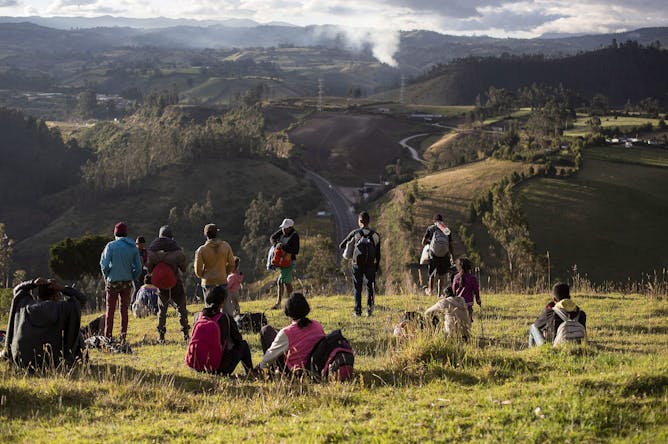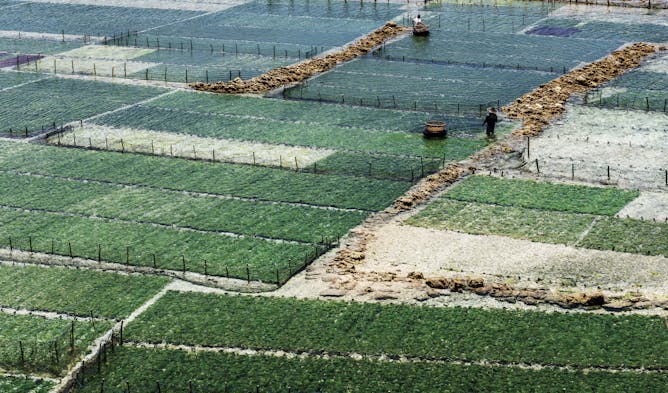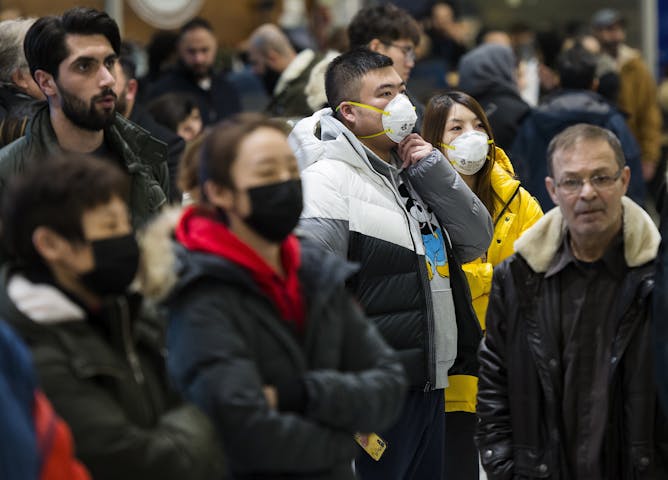|
|
|
Protecting LGBTQ+ refugees
|
|
We are in the middle of the greatest displacement of people in history. Of the more than 70 million people displaced from their homes globally, the largest growing number are refugees from Venezuela. Nearly 15 per cent of the country has fled, seeking safety and asylum elsewhere. For LGBTQ+ refugees, safety is elusive. Today in The Conversation Canada, Yvonne Su of the University of Guelph tells us about the only dedicated centre for LGBTQ+ refugees in Latin America: Casa Miga, which has limited space and resources.
Already isolated and vulnerable, it seems to me that LGBTQ+ refugees (really, all refugees) shouldn’t have to go it alone. Canada has been willing to jump in where the crisis calls for it. Canadians have overwhelmed the government with demand so we can privately sponsor refugees. Syrian refugees have come by the thousands, and found jobs and homes across the country. And in 2017, the Canadian government worked with Rainbow Railroad (an organization that evacuates queer refugees from dangerous countries) to extract 42 Chechen refugees during Russia’s deadly crackdown on queer Chechens. Casa Miga may be remote but its problems are everyone’s.
Also today:
Regards,
|
Vicky Mochama
Culture, Society, Critical Race Editor
|

|
|
Today's Featured Articles
|

Venezuelan migrants look at the Panamericana Highway, in Urbina, Ecuador. More than 4.5 million Venezuelans have fled to neighbouring countries like Brazil, where they must navigate anti-migrant politicians. LGBTQ+ refugees in South America have only one dedicated centre — Casa Miga — to turn to.
AP Photo/Edu Leon
Yvonne Su, University of Guelph; Tyler Valiquette
The only centre for LGBTQ+ refugees in Latin America is overwhelmed by demand and is struggling to take in refugees from Venezuela.
|

Workplaces may stick with manual data entry, even in the age of digital technology advances.
(Shutterstock)
Lisa Cohen, McGill University
Attitudes about data entry are complex, despite a recent study suggesting it's the most despised workplace task.
|

Chopping wood and making paper airplanes are activities children might pursue in a classroom taking a phenomenon-based approach to the question: How would we respond to a loss of electricity?
(Shutterstock)
Theodore Christou, Queen's University, Ontario
After 20 years of education strife in Ontario, it's time to look overseas for inspiration to rethink what education is about.
|

An Indonesian traditional seaweed farm in Nusa Penuda, Bali.
(Shutterstock)
Alesandros Glaros, University of Guelph; Emily Duncan, University of Guelph; Evan Fraser, University of Guelph; Lisa Ashton, University of Guelph
Awareness is increasing about foods like lab-grown meat, insects and seaweed. These foods may help address environmental challenges, but it's important to be aware of both the costs and benefits.
|
La Conversation Canada
|

Des gens attendent à l’aéroport international Pearson de Toronto, le 25 janvier 2020.
La Presse Canadienne/Nathan Denette
Maxwell J. Smith, Western University; Jacob Shelley, Western University
La déclaration ne signifie pas que le risque pour les Canadiens a changé, plutôt que le Canada doit intervenir pour aider les pays dont les systèmes de soins de santé sont plus faibles.
|
Health + Medicine
|
-
Allen Cheng, Monash University
The Wuhan coronavirus can cause lung damage, pneumonia and multi-organ failure, or sepsis, among other things.
|
|
Politics
|
-
Linda J. Bilmes, Harvard Kennedy School
The Trump administration has cut funding for infectious disease research and reduced high-level staffing for global health security, leaving the nation less prepared for major outbreaks.
|
|
Business + Economy
|
-
Chengwei Liu, Warwick Business School, University of Warwick
Ignore business books which promise to reveal the secret formula of success – usually it's down to luck.
|
|
| |
| |
| |
| |
| |
| |
|
|
|
|
|
|
|